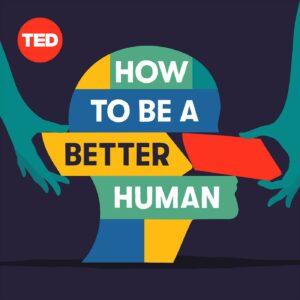Intro
In this episode of the Huberman Lab podcast, Dr. Casey Halpern discusses his lab’s research on bulimia, binge eating disorder, and other forms of obsessive-compulsive behaviors. He shares insights into the development and application of engineered devices to stimulate neurons in the brain, as well as the potential treatments for these conditions. Dr. Halpern’s work is at the forefront of understanding and repairing the human brain.
Main Takeaways
Advancements in Deep Brain Stimulation
- Dr. Casey Halpern’s lab focuses on bulimia, binge eating disorder, and other forms of obsessive-compulsive behaviors.
- The lab’s main focus is the development and application of engineered devices to stimulate neurons in the brain that generate compulsions, causing people to want to eat more even when their stomach is full.
- The lab uses brain surgery, such as removing small bits of brain or stimulating small bits of brain with electrical current, and even stimulating the brain through the intact skull to alleviate and cure these conditions.
- The lab recently published a paper in Nature Medicine entitled “Pilot Study of Responsive Nucleus Accumbens Deep Brain Stimulation for Loss of Control Eating”.
- Dr. Halpern and his team are among a small group of scientists in the world using these approaches to resolve some of the most difficult and debilitating human conditions, including movement disorders such as essential tremor, Parkinson’s disease, and dystonias.
Understanding OCD and Deep Brain Stimulation
- OCD involves obsessions and compulsions, and deep brain stimulation is a potential treatment option.
- First-line treatments for OCD are SSRIs and tricyclics.
- Exposure response prevention and cognitive therapies are effective for OCD patients, but about 30% still suffer.
- Deep brain stimulation surgery and capsulotomy are options for severe OCD patients, but still carry risks and should be weighed carefully.
- Understanding the circuits in the brain involved in OCD is important for developing better treatments.
Exploring Binge Eating Disorder and Obesity
- Binge eating disorder is heavily linked to obesity.
- Understanding the nucleus accumbens can lead to better treatment for addiction, eating disorders, and obesity.
- Repeated exposure to high-fat food, drugs of abuse, or strong rewards can hijack normal functioning of the nucleus accumbens, leading to continued behavior and eventually the development of habits.
- The goal of the invasive trial is to restore normal functioning to the nucleus accumbens and block the behavior by delivering real-time therapy in the form of brain stimulation for a brief amount of time.
- The therapy is delivered at the right time and only at the right time to get the patient back on track and disrupt the recurring problem that is happening.
Non-Invasive Approaches and Future Research
- Non-invasive brain stimulation techniques like transcranial magnetic stimulation and ultrasound are being used to treat depression and other brain syndromes.
- Developing non-invasive approaches for treating mental health disorders is critical.
- The spatial precision of non-invasive brain stimulation techniques needs improvement.
- A study is being conceived to explore an episodic approach with response stimulation targeting the nucleus accumbens to help patients with obesity and binge eating disorder.
- Neurosurgeons need to be part of the discussion with non-invasive approaches to make them more precise.
Summary
Advancements in Deep Brain Stimulation
Dr. Casey Halpern’s lab focuses on understanding and treating bulimia, binge eating disorder, and other forms of obsessive-compulsive behaviors. They are at the forefront of developing and applying engineered devices to stimulate neurons in the brain, aiming to alleviate and cure these conditions. Their recent publication in Nature Medicine highlights their pilot study of responsive nucleus accumbens deep brain stimulation for loss of control eating. This groundbreaking research offers hope for those suffering from movement disorders and other debilitating conditions.
Understanding OCD and Deep Brain Stimulation
OCD is a complex disorder involving obsessions and compulsions. While first-line treatments such as SSRIs and cognitive therapies can be effective, a significant portion of patients still suffer. Deep brain stimulation surgery and capsulotomy are potential options for severe cases, but careful consideration of risks is necessary. Understanding the brain circuits involved in OCD is crucial for developing more targeted and effective treatments.
Exploring Binge Eating Disorder and Obesity
Binge eating disorder is closely linked to obesity, and understanding the nucleus accumbens, a brain region involved in reward-seeking behavior, can provide insights into addiction, eating disorders, and obesity. The goal of the invasive trial is to restore normal functioning to the nucleus accumbens by delivering real-time therapy through brain stimulation. This approach aims to disrupt the recurring problematic behaviors associated with binge eating disorder and obesity.
Non-Invasive Approaches and Future Research
Non-invasive brain stimulation techniques like transcranial magnetic stimulation and ultrasound are being explored for the treatment of depression and other brain syndromes. However, further research is needed to improve the spatial precision of these techniques. A study is being planned to investigate an episodic approach with response stimulation targeting the nucleus accumbens to help patients with obesity and binge eating disorder. Neurosurgeons play a crucial role in refining and advancing non-invasive approaches to make them more precise and effective.
Conclusion
Dr. Casey Halpern’s research on deep brain stimulation and novel technologies for the treatment of eating and movement disorders is groundbreaking. By understanding the circuits in the brain and developing targeted therapies, there is hope for alleviating the suffering of those with conditions such as bulimia, binge eating disorder, and OCD. The ongoing advancements in non-invasive approaches also hold promise for the future. Stay tuned to the Huberman Lab podcast for more insights and updates on the latest scientific discoveries.
